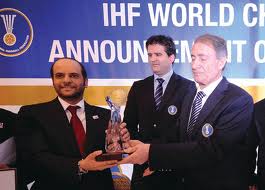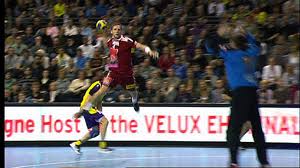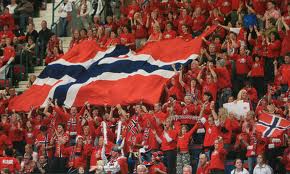
Stress is good up to a point but it can become overwhelming
Just recently I wrote about the tragic and fatal accident of the Methe brothers. This event quickly caused speculation about the stressful existence of top referees. A few days later, there was the sad story of the Bundesliga football referee, Babak Rafati, who was found by his linesmen, just barely alive, after having tried to commit suicide hours before their game in Cologne. Here, of course, the speculation really took off quickly: did it happen for personal or family reasons, or was it related to the refereeing? Precisely to put a stop to such awkward speculation, Rafati bravely went out with a press statement soon after he was in shape enough to do so. Here he made it clear that the depression leading to his action was indeed caused by the stress of the refereeing.
In his statement, Rafati referred to the constant fear of making a major mistake and the pressure caused by the scrutiny in media. This had begun to affect him in his personal life to such an extent that even small problems started to seem insurmountable. It should be noted that Rafati had progressed to the level of international (FIFA) referee, but that his performances in the last couple of years had caused him to be rated lowly in unofficial media rankings, involving the opinions of players. Moreover, he had recently been informed by the German federation that he would be removed from the FIFA list in 2012.
During my many years in international handball, I always took a special interest in the psychological aspects of refereeing and their personal situation. Perhaps this came naturally to me, given my professional career in personnel management and international recruitment. As I see it, this field is considerably ignored, as regards both the ability of referees to handle the pressure during the games and the way the task can impact their personal life. The focus tends to be on technical skills, rules knowledge, fitness, and social skills in the handling of the teams. At the most, one tends to evaluate the courage in the decision-making during the game. But the job takes a toll that can have a heavy impact away from the games. So the personal strengths and characteristics of the elite referees become critically important.
The causes of stress
Whether you are talking about handball or football (or similar sports), there are several reasons for this: 1. the games at the top level have become much more demanding due to their intensity and complexity – so it is much tougher to avoid mistakes; 2. through TV and technology, with replays, close-ups and slow motion – so the mistakes become clear not just to a few players but to thousands of spectators and millions of viewers; 3. it is no longer ‘just’ a matter of pride and prestige to win matches and championships, because enormous amounts of money are involved — so a mistake that effects the result can have huge consequences. Talk about pressure…!
While it may sound strange to an outsider, the pressure may not typically manifest itself primarily during the game; because then the referee is fully concentrated and immersed, so the task may seem more concrete and manageable, and the extraneous worries may be less obvious or immediate. The adrenaline is flowing and the physical action and the excitement of being part of the game may overshadow everything else for the moment. Indeed, the duration of the game is likely to be the most satisfying part of the overall situation of the referee.
Instead, the anticipation of an important game, the determination to be optimally prepared, and the sense that one may never feel sufficiently prepared, may be factors that create real pressure. Similarly, the self-doubts, the second-guessing after a game, even in the absence of any problems or controversies, may be what prevent a conscientious referee from having peace of mind. If one then adds reactions to criticism, whether justified or not, from media or team representatives, the pressure can really mount.
With very rare exceptions, our elite referees in handball (and for the most part in football) are not professionals in the sense that they do not have any other job. So apart from family responsibilities, they must also handle the refereeing in competition with their ‘real’ job and career. Indeed, there is then a risk for a negative influence in both directions, between the refereeing and the job/family. I will not sidetrack too much into this topic, and in fact I am not necessary arguing that professional referees in handball or football is the way to go, at least not until the number of games would fully justify it (as in NHL/NBA). (Also, giving up another career for a risky refereeing career might become an additional stress factor, and an exclusive focus on the refereeing might not be the right kind of approach for everyone).
But there is a major handicap that is normally overlooked: elite teams and also top-level individual athletes have an impressive support structure, consisting of a coaching staff, administrators, physicians, physiotherapists, psychologists, nutritionists etc etc. Normally, none of that is directly available to the elite referees on an ongoing basis, so they must deal with all their different forms of preparations and their pre- and post-game concerns alone. The only burden sharing they can count on is with their partner (or assistants, in football). [By the way, this is a strong reason why the system of ‘fixed couples’ (or teams) is so important at the top level].
There is another important comparison that may not always be so obvious: the teams have the advantages of playing half of their games at home. Not just does it reduce travel for them, whereas for the referees every game is an ‘away’ game. But it also has its psychological advantages. The home crowd provides a strong and loud support for the team and the players they adore. Clearly, this is a special thrill and boost. By contrast, the best our referees can hope for is to go unnoticed or to find a reluctant tolerance for their efforts. But more likely they have to be prepared for the wrath and the insults of a partisan crowd! Similarly, successful teams and players get to experience the satisfaction of winning, but there are no similar rewards for strong referee performances.
What needs to be done
At this point, perhaps some readers will wonder why I go to such length in painting a negative picture. Or you may wonder how it is possible to recruit referees for this kind of ‘torture’. But the reality is, of course, that refereeing, to some extent precisely because of the difficulties, has its rewards. Referees thrive on the challenges and are proud of how they overcome them! It is not an occupation for masochists. So I am not asking you to feel sorry for them! But my objective is in part to
create a more widespread appreciation for some of the problems. And even more important, while most of the challenges are an inevitable part of the job, the typical lack of an adequate support structure is neither inevitable nor excusable!
The elite referees are such a vital part of the game and contribute in such an important way that they clearly both need and deserve strong support, not just for their sake but for the sake of the game. We need them, moreover in top form, and we cannot have a large attrition after we have managed to recruit and train suitable persons. Part of the problem is that most educators and administrators in refereeing do not have all the specialized skills needed. So most national federations have neither the personnel nor the resources to acquire the added expertise.
This means that for what is essentially a relatively small and select group of elite referees, the international federations (IHF in the case of handball) and the continental federations, who are the ones who really depend on this group of referees, simply must assume the responsibility for putting in place the necessary support structure. This involves much closer contacts and monitoring, modern support with technical and physical preparations, but also continuous access to expertise on psychological and social aspects. Generally speaking, a network is needed that creates a sense of making the referees part of a team, not just on paper or as a cliché but in a very practical sense. The national federations and clubs are fully capable of taking care of their teams; now it is time to take care of the referee team!












